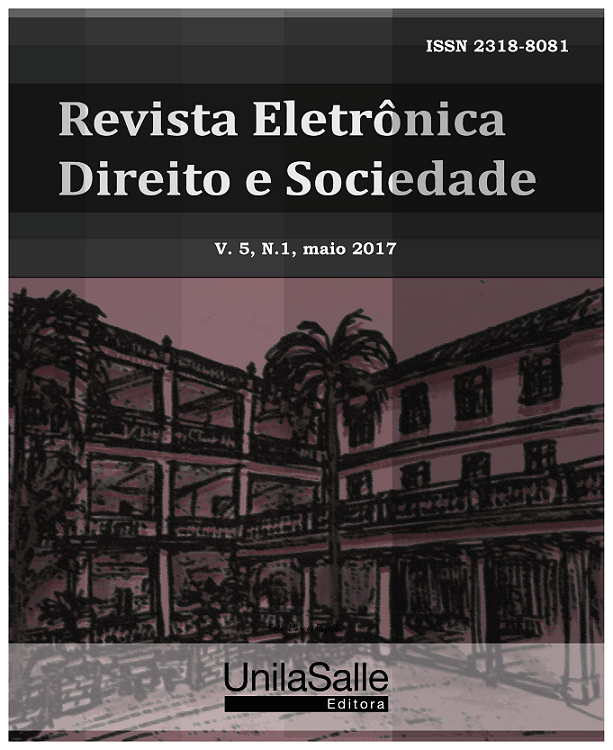Contribution of mediation in the academic training of legal actors: the possibility of changing the culture of litigation
DOI:
https://doi.org/10.18316/redes.v5i1.3768Keywords:
Acesso à justiça, Cultura do Litígio, Ensino Jurídico, Judicialização, Mediação.Abstract
Pesquisa recente do Conselho Nacional de Justiça demostra que o Brasil enfrenta uma elevada taxa de demandas enquanto os recursos humanos e orçamentários não logram acompanhar esse aumento. Como consequência, tem-se a limitação do acesso à justiça em razão da morosidade do Judiciário que acaba por conceder uma justiça tardia e muitas vezes ineficiente para o caso judicializado. Como prováveis causas do aumento significativo de litígios o estudo aponta para duas, a cultura do litígio e a crise de solução estatal. Assim, a presente pesquisa tem como objetivo verificar se diante da insuficiência dos métodos jurídicos tradicionais, notadamente a via judiciária, é possível que práticas em mediação contribuam na formação acadêmica dos futuros atores jurídicos e para a mudança da cultura do litígio. Como metodologia utilizou-se a técnica de pesquisa empírica, com a coleta de dados por meio de questionário e respectiva análise quantitativa. O campo de pesquisa eleito é a Faculdade Alfa (nome fictício), que em seu currículo oferta a disciplina de Mediação e Arbitragem, bem como possui uma atividade prática de mediação. A dissertação valeu-se, também, da técnica de pesquisa bibliográfica exploratória, adotando como referencial teórico principal o autor Luis Alberto Warat. O estudo retratou o acesso à justiça no Brasil, verificando as problemáticas comuns e os avanços processuais no sentido de garantir esse princípio. A pesquisa diferenciou o modelo estatal de solução imposta e o modelo de solução construída no que se refere à formação do habitus dos atores jurídicos. Considerou a formação acadêmica dos juristas, bem como a tentativa de se considerar a mediação como proposta pedagógica. Por fim, foi apresentada a análise quantitativa dos dados empíricos que serviram para ilustrar a hipótese levantada.
Downloads
Published
Issue
Section
License
Authors who submit their manuscripts for publication in the “REDES” Magazine agree to the following terms:
The authors claim to be aware that they retain copyright by giving “REDES” the right to publish.
The authors declare to be aware that the work submitted will be licensed under the Creative Commons Non-Commercial Attribution License which allows article sharing with acknowledgment of authorship and publication in this journal.
The authors declare to be aware that by virtue of the articles published in this journal have free public access.
The authors declare, under the penalty of the law, that the text is unpublished and original and that they are aware that plagiarism has been identified, plagiarized authors will be informed - willingly, to take legal action in the civil and criminal sphere - and, plagiarists will have their access to the magazine blocked.
The authors state that - in case of co-authoring - all contributed significantly to the research.
Authors are obliged to provide retractions and (or) corrections of errors in case of detection.
The authors are obliged not to publish the text submitted to “REDES” in another electronic journal (or not).
The Electronic Journal Law and Society - REDES - is licensed under a Creative Commons License. Attribution-NonCommercial 4.0 International.Based on work available at "http://revistas.unilasalle.edu.br/index.php/redes/about/submissions#copyrightNotice".
Permissions in addition to those granted under this license may be available at http://creativecommons.org/.

